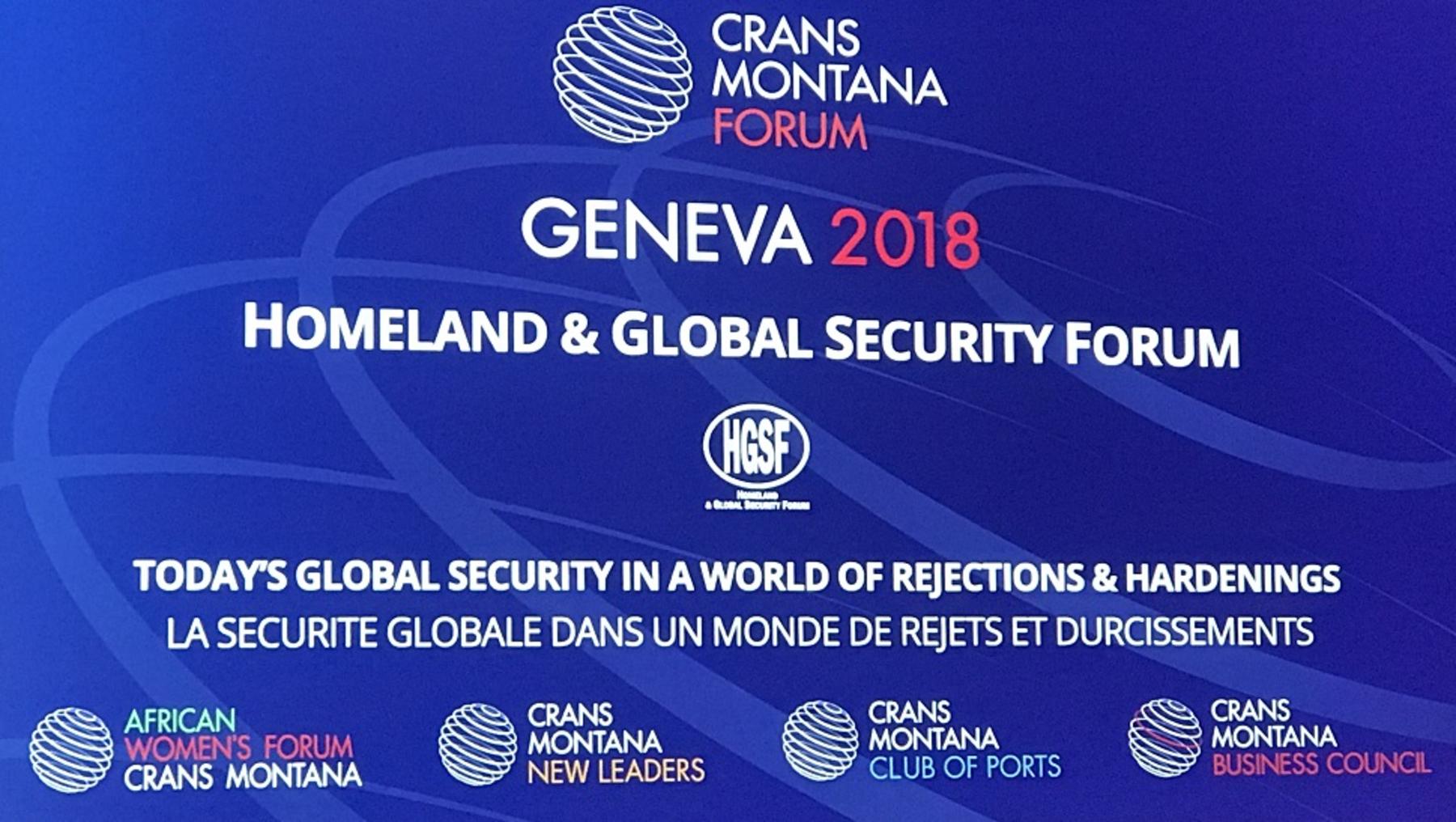EFSAS speaks on Terrorism in South Asia at prestigious Crans Montana Forum in Geneva
26-10-2018, Geneva
A delegation of the European Foundation for South Asian Studies (EFSAS) consisting of Mr. Dušan Vejinović (Senior Research Analyst) and Mr. Junaid Qureshi (Director) attended the 20th Annual Session of the Homeland & Global Security Forum in Geneva, organized by the Crans Montana Forum.
The Forum brought together Heads of State and Government, Ministers, International Organizations, Parliaments, Justice & Police Administrations and Businesses from around the World. Notable attendees during this forum were Mr. Abdul Hamid - President of the People's Republic of Bangladesh, Mr. Michael Møller - Director General United Nations Office Geneva, Mr. Armen Sarkissian - President of the Republic of Armenia, Mr. Jacques Maire - Vice President Committee on Foreign Affairs National Assembly of France, Mr. Abbas Ali Al Naqi - Secretary General Organization of Arab Petroleum Exporting Countries, Mrs. Yulia Tymoshenko – Former Prime Minister of Ukraine, Mr. Alan Doss – President Kofi Annan Foundation, Mrs. Maria Helena Semedo - Dep. Director General Food and Agriculture Organization of the United Nations and other eminent officials.
Director EFSAS, Mr. Junaid Qureshi was invited to provide the participants of the Conference with an insight into the phenomenon of Terrorism in South Asia and its impacts on the rest of the world, during the Conference’s Special Programme dedicated to ‘Fight against terrorist contamination from the East’ organized on Friday 26 October.
In his speech, Mr. Qureshi explained how the region of South Asia harbours many interrelated conflicts and how the different conflicts have the potential of becoming stimuli for clashes amongst countries, as well as how such conflicts could be manipulated by terrorist organizations, which could have a divisive impact on security in the West and elsewhere in the world.
He further elaborated that terrorist attacks in the US, London, Madrid and more recently in Paris have exhibited that regional turmoil can spread like a disease to other places as well. While citing examples of ‘Terrorist sleeper cells’ in Europe which threaten the basic fundaments of democracy and pose serious challenges to security concerns of the West, Mr. Qureshi described that these elements are known to have enjoyed psychological and military training in South Asia, particularly in countries like Pakistan, Afghanistan and Bangladesh.
Mr. Qureshi also discussed how the remarkable expansion of global terrorist organizations like ISIL and Al-Qaeda has instigated other local extremist forces like the Lashkar-e-Taibah (LeT), operating from Pakistan, to strengthen its reach and adopt new strategies, as it continues to enjoy patronage from State actors.
While recommending that global partners should avail opportunities of engaging in bilateral agreements of intelligence sharing, counter-terrorism policies and maritime security with respective countries in South Asia, Mr. Qureshi stressed that one cannot afford to underestimate the formidable infrastructure of terrorism in South Asia. He also highlighted that from the expansion of terrorist groups and their worldwide recruitment policies, it has become evident that the threat of terrorism is not restricted to its region of origin anymore.
Mr. Qureshi concluded his presentation by emphasizing that South Asian countries and global partners should take a lead in implementing counter-terrorism policies as the situation demands a genuine collective approach from the West, East, North and South as equal partners and stakeholders.


